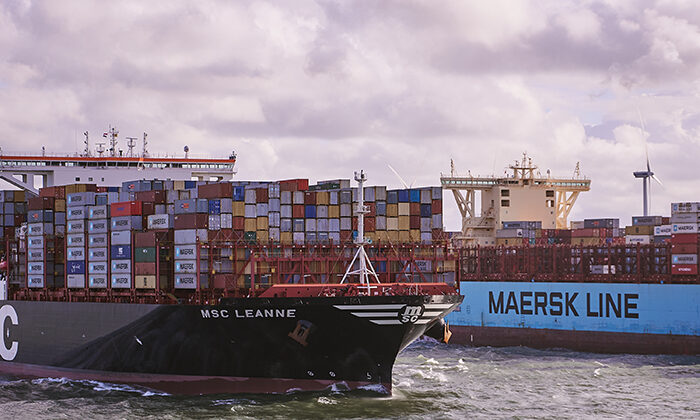
Maersk, MSC go head-to-head in hunt for shipping’s White Whale
Two of shipping’s biggest players are pursuing very different answers to the question that plagues the industry: How do you get a container to arrive on time?
For decades, Aarhus Havn was solidly Maersk country. As Denmark’s busiest commercial port, the city had long been a vibrant hub for the shipping behemoth with its familiar Smurf-blue fleet. So when the Port of Aarhus announced plans for a new terminal, it was widely assumed the Copenhagen-based company would get the business.
The final decision last year surprised everyone.
Not only did A.P. Moller-Maersk A/S lose out, the contract went to Geneva-based MSC Mediterranean Shipping Co. SA — its fiercest competitor and partner for the past decade in a fractious vessel-sharing alliance.
“If their relationship was bad already, this has only made it worse,” said Peter Sand, chief analyst at Oslo-based freight analytics platform Xeneta. “MSC wants to be in charge now.”
That rocky partnership, a product of the relentless pressure on the industry to cut costs, officially reaches a breaking point this week. Their 2M alliance will be disbanded on Jan. 31 as the world’s biggest container carriers pursue radically different solutions to answer an age-old question: What’s the most efficient, reliable and cheapest way of moving standardized metal boxes filled with cargo around the globe?
The fallout will be felt by all companies that rely on seaborne trade. MSC controls more than 20% of global container capacity and Maersk clings to a 14% share. Analysts see stars aligning for a price war as the workhorses of global trade jostle for market share while racing to adapt to the geopolitical upheavals rewiring the world economy.
MSC wants to be the lone ocean heavyweight, declaring itself an “alliance-free carrier” in an industry dominated just a few years ago by three partnerships. Its commanding lead is likely to widen, based on the number of new ships entering service.
Maersk is honing an end-to-end logistics network on land and sea, and has a new ocean partner in Hamburg, Germany-based Hapag-Lloyd AG. They’ve formed the Gemini Cooperation alliance. Its focus will be on schedule reliability — a concept lost during the trade disruptions of the past five years that, on average, prevented half of ships from arriving on time.
Source : BLOOMBERG
